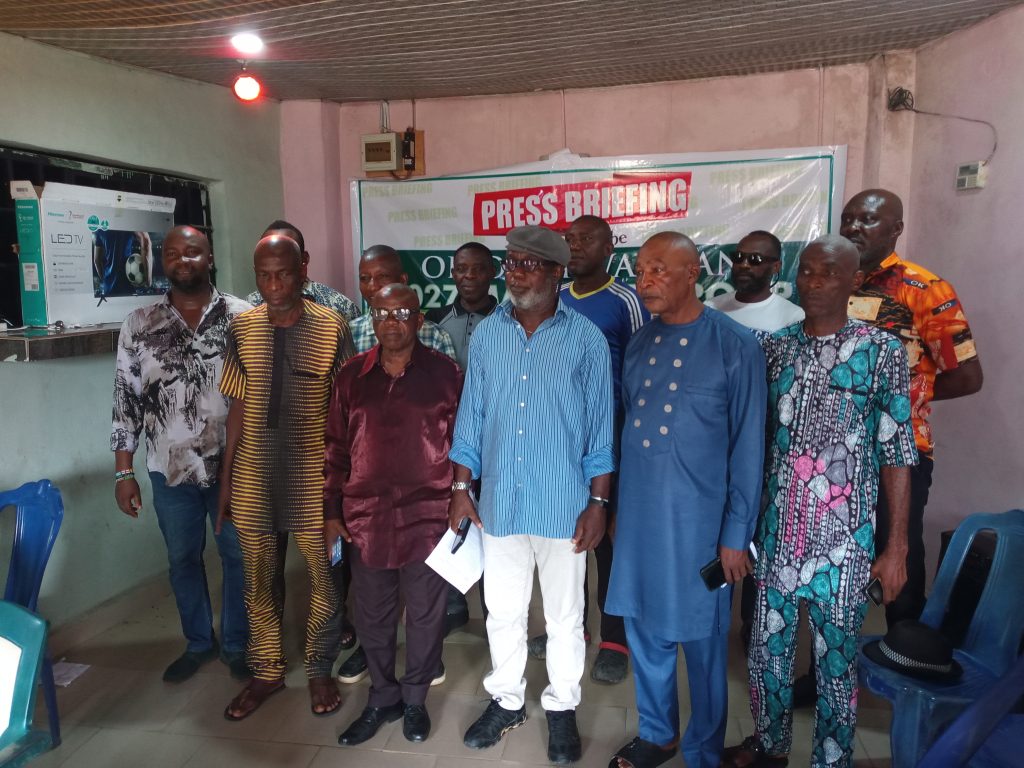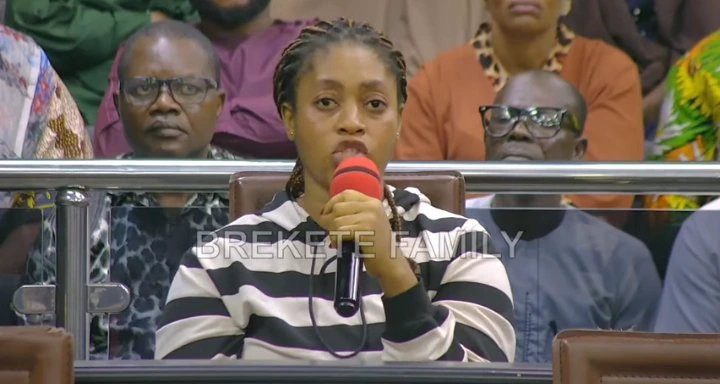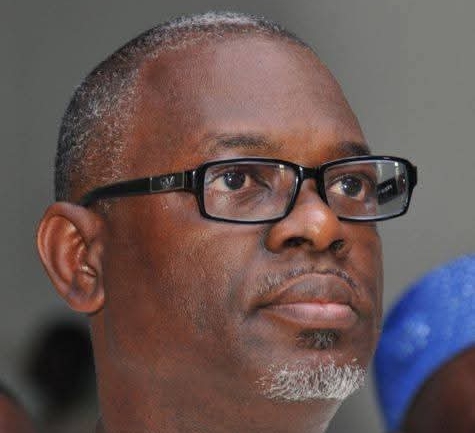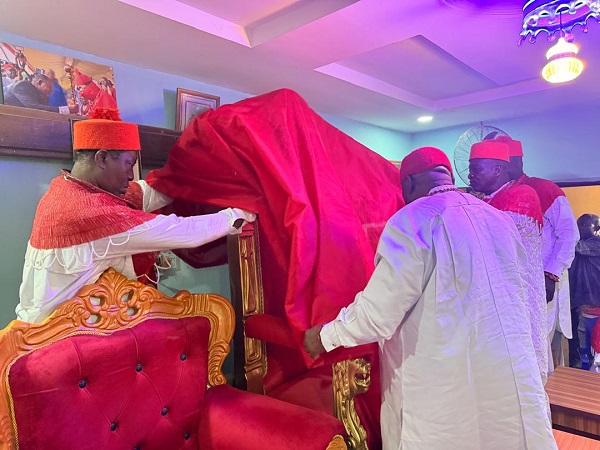Politics
Breaking: National assembly modifies emergency rule in Rivers state
DDM News

The Nigerian National Assembly has approved President Bola Tinubu’s proposal to declare a state of emergency in Rivers State.
However, this approval came with significant changes to the original proposal.
Diaspora digital media (DDM) gathered that these modifications were intended to ensure more accountability and oversight during the emergency period.
The changes were revealed by Senate spokesperson, Senator Yemi Adaramodu, during an interview with journalists.
The interview took place in Ilawe-Ekiti on April 8, 2025.
Rivers State has been facing political unrest for several months.
The tensions involve a deepening divide between political factions.
These factions include those loyal to Governor Siminalayi Fubara and those aligned with former Governor Nyesom Wike.
Wike is now the Federal Capital Territory (FCT) Minister.
This divide led to significant instability, including protests and violence.
The unrest raised serious concerns about the state’s ability to maintain law and order.
Amid these challenges, President Tinubu invoked his constitutional powers to declare an emergency.
The President requested a six-month period of emergency rule.
However, the declaration required the approval of the National Assembly.
The National Assembly, after deliberation, made key amendments to the proposal.
While it agreed on the need for emergency action, it did not accept the original six-month duration.
The legislature decided to shorten the timeframe, signaling a more cautious approach.
Though the revised period was not disclosed, this move indicated that the National Assembly sought regular assessment.
The modifications were designed to ensure that the emergency rule would be effective yet limited in scope.
These changes reflect the legislature’s desire to uphold democratic principles, even in times of crisis.
In addition to shortening the duration, the National Assembly introduced measures for oversight.
A framework was established for ongoing monitoring of the administration during the emergency period.
This will include active scrutiny of Vice Admiral Ibok-Ete Ibas (retired).
Ibas was appointed as the sole administrator of Rivers State for the duration of the emergency.
The National Assembly’s role will be to assess his actions and ensure alignment with constitutional requirements.
This oversight is intended to prevent any misuse of executive power during the emergency rule.
Senator Adaramodu emphasized that the legislature’s involvement was not merely symbolic.
He pointed out that the National Assembly has a constitutional duty to scrutinize executive decisions.
“The President cannot just declare a state of emergency without legislative input,” Adaramodu stated.
He further emphasized that the legislature must be involved in decisions that affect national governance.
The National Assembly’s role is to deliberate and, if necessary, amend executive actions.
This function is vital in maintaining the balance of power between the branches of government.
In addition to the oversight framework, the Senate took steps to address the root causes of the crisis.
A mediation committee was set up by the National Assembly.
The committee’s primary task will be to facilitate dialogue between the opposing political factions in Rivers State.
The aim of this dialogue is to restore political order and establish democratic governance.
Through peaceful negotiations, the committee hopes to resolve the political instability.
The National Assembly hopes that the mediation efforts will help deescalate the tensions in the state.
Senator Adaramodu also addressed concerns about the independence of the National Assembly.
He challenged the notion that the 10th National Assembly is merely a rubber stamp for the executive.
He argued that the legislature plays a collaborative but independent role.
Adaramodu stressed that decisions made by the National Assembly are the result of thorough debate.
Approvals and reforms are not taken lightly but after extensive consultations with stakeholders.
“We are not an opposition bloc,” Adaramodu stated.
“We are a co-equal branch of government.”
The National Assembly’s involvement in the emergency rule decision reflects a strong commitment to constitutional principles.
Despite the urgency of the situation in Rivers State, lawmakers did not compromise on the importance of democratic checks.
This reflects a broader effort to prevent the erosion of democratic institutions during times of crisis.
The legislature has proven that it is not merely a passive participant in governance.
Instead, it is an active player ensuring that the rule of law is upheld.
The modifications introduced by the National Assembly may have significant implications.
They could set a precedent for how emergency powers are implemented in the future.
The National Assembly’s approach may influence future declarations of emergency rule in other states.
By asserting its constitutional role, the legislature has reinforced the principle of checks and balances.
This could have a lasting impact on Nigeria’s approach to managing national crises.
It also underscores the importance of safeguarding democratic norms, even in emergencies.
Despite the positive changes, the situation in Rivers State remains precarious.
The tensions between the political factions are far from resolved.
The mediation committee will face significant challenges in achieving peace.
The National Assembly will continue to monitor the progress of the emergency rule.
Lawmakers are determined to ensure that the situation does not spiral further into instability.
The coming weeks will be critical in determining the success of the emergency administration.
Rivers State is a vital region for Nigeria due to its oil resources.
The outcome of this crisis will have wider implications for the nation’s political landscape.
The National Assembly’s involvement in resolving the crisis may set a new standard for governance.
The state’s future, both politically and economically, is uncertain.
However, the federal government’s approach provides a model for addressing instability through oversight and negotiation.
The actions of the National Assembly highlight the importance of maintaining democratic processes.
Even in times of crisis, the legislature must remain vigilant.
Through its oversight and mediation efforts, the National Assembly has ensured that the government remains accountable.
This intervention could ultimately lead to a more stable and democratic governance in Rivers State.
The National Assembly’s role in this process reinforces the importance of cooperation and accountability between the branches of government.
For Diaspora Digital Media Updates click on Whatsapp, or Telegram. For eyewitness accounts/ reports/ articles, write to: citizenreports@diasporadigitalmedia.com. Follow us on X (Fomerly Twitter) or Facebook












